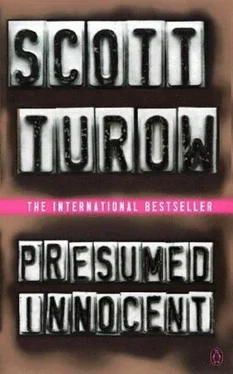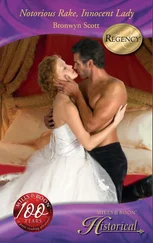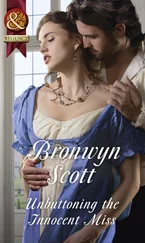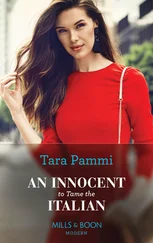Scott Turow - Presumed innocent
Здесь есть возможность читать онлайн «Scott Turow - Presumed innocent» весь текст электронной книги совершенно бесплатно (целиком полную версию без сокращений). В некоторых случаях можно слушать аудио, скачать через торрент в формате fb2 и присутствует краткое содержание. Жанр: Детектив, на английском языке. Описание произведения, (предисловие) а так же отзывы посетителей доступны на портале библиотеки ЛибКат.
- Название:Presumed innocent
- Автор:
- Жанр:
- Год:неизвестен
- ISBN:нет данных
- Рейтинг книги:4 / 5. Голосов: 1
-
Избранное:Добавить в избранное
- Отзывы:
-
Ваша оценка:
- 80
- 1
- 2
- 3
- 4
- 5
Presumed innocent: краткое содержание, описание и аннотация
Предлагаем к чтению аннотацию, описание, краткое содержание или предисловие (зависит от того, что написал сам автор книги «Presumed innocent»). Если вы не нашли необходимую информацию о книге — напишите в комментариях, мы постараемся отыскать её.
Presumed innocent — читать онлайн бесплатно полную книгу (весь текст) целиком
Ниже представлен текст книги, разбитый по страницам. Система сохранения места последней прочитанной страницы, позволяет с удобством читать онлайн бесплатно книгу «Presumed innocent», без необходимости каждый раз заново искать на чём Вы остановились. Поставьте закладку, и сможете в любой момент перейти на страницу, на которой закончили чтение.
Интервал:
Закладка:
Next, Larren takes up the subject of publicity. He questions jurors about what they have read. For those who are being coy he points out the article announcing the start of the trial on the front page of today's Trib. Jurors always lie about this. People who want to get out of jury service usually find a way. The ones who come to the courthouse are, for the most part, eager to serve and less willing to confess to obvious disqualifications. But Larren slowly wins the truth from them. Nearly everybody here has heard something about this case, and over about twenty minutes Judge Lyttle tells them that is worthless information. "Nobody knows anything about this case," he says, "because there has not been a word of evidence heard." He excuses six people who admit that they will not be able to put the publicity out of their minds. It is unsettling to consider what the others, subjected to Nico's media splash, must think about the case. It's hard to believe that anyone can really fully put aside those preconceptions.
Late in the morning, questioning about the jurors' backgrounds begins-this process is called voir dire, truth-telling, and it continues throughout the afternoon and into the second morning. Larren asks everything he can think of and the lawyers add more. Judge Lyttle will not allow questioning directed to the issues of the case, but the attorneys are permitted to roam freely into personal details, limited largely only by their own reluctance to give offense. What TV shows do you watch, what newspapers do you read? Do you belong to any organizations? Do your children work outside the home? In your house, are you or your spouse in charge of the monthly bookkeeping? This is the subtle psychological game of figuring out who is predisposed to favor your side. Consultants now earn hundreds of thousands of dollars making such predictions for lawyers, but an attorney like Stern knows most of this by instinct and experience.
To pick a jury effectively you must know the case you want to try. Stern has not said anything to me, but it is becoming clearer that he has a strong notion not to offer evidence for the defense. He thinks he can whittle away at Nico's proof. Perhaps my actions in the past, when I have been beyond control in spite of his instructions, have convinced him I would be a poor witness in my own behalf. No doubt the decision to testify or not will be mine in the end. But I suspect that Stern is simply trying to move things to the point that I am convinced we can win without my testimony, before he forces my hand. In any event, he has spent little time talking to me about the defense case. Mac and a few of the judges have agreed to appear as character witnesses. Stern also has asked me about neighbors who would be willing to offer that kind of testimony. Clearly, though, he wants to try a reasonable doubt case. At the end, if all goes as he hopes, no one will know what happened. The state will have failed to meet its burden of proof and I should be acquitted. With that goal, we need jurors bright enough to appreciate the legal standard and strong enough to forthrightly apply it-people who will not convict merely because they are suspicious. For that reason Sandy has told me that he thinks younger jurors will be better overall than old. In addition, they may be more in tune with some of the nuances of male and female relations that so strongly flavor the case. He wants, in other words, people who might believe that co-workers adjourn to a woman's apartment for reasons other than sexual intercourse. On the other hand, he has said, older people will have more immediate respect for my past attainments, my position, and my reputation.
Whatever the plans, you usually go in the end on gut impressions. Certain jurors just seem to be people you think you like, folks you can talk to. On the second morning, as we begin making our choices, Stern and Kemp and I have few disagreements. We huddle together at the counsel table, directing our decisions to prospective jurors taken up in groups of four. Barbara is invited by Sandy to come up from the nearest spectator bench to join in our consultation. She places her hand lightly on my shoulder, but offers no comment. Standing close to me as we confer, dressed in a dark blue silk suit and again, a matching hat, she conveys an impression of somber dignity, of grieving well restrained. Overall, the effect is a little like the Kennedy widows. She is playing her small part well. Last night, after the voir dire started, Sandy explained to Barbara that he would be calling on her in this fashion. At home, she expressed appreciation for Sandy's courtesy and I explained to her that courtesy was not his prime intent. Stern again wants all the jurors to see at the outset that my wife is still on my side and that we, in this modern age, defer to the opinions of women.
The defense gets to excuse ten jurors without explanation-so-called peremptories. The prosecution gets six. Nico's plan seems to be pretty much the inverse of ours, although with fewer challenges he does not have the same opportunity to shape the panel. In general, he seems to be looking for his voters, older ethnic types, generally Roman Catholics. For that reason, without having planned to do it earlier, we strike all the Italians. I am more comfortable with the group that we end up with than was often the case when I was a prosecutor. There is a preponderance of younger people, many of them single. A female drugstore manager in her late twenties. A young woman who is an accountant with a brokerage house. A twenty-six-year-old man is an assembly-line foreman, and another fellow about his age runs restaurant services at a local hotel and fiddles part-time with computers. There is a young black woman who does auditing at a local insurance company. Among the twelve, we have a divorced female schoolteacher, a secretary for a local rail line, a man who retired last year from running a high school music program, and an auto mechanic; also a Burger King management trainee, a retired nurse's aide, and a cosmetics saleswoman from Morton's. Nine whites, three blacks. Seven women, five men. Larren also seats four alternates, who will hear the evidence but not take part in deliberations unless one of the twelve regulars falls ill or is otherwise excused.
With the jury chosen, early in the second afternoon we are ready to start my trial.
At ten minutes to two we arrive again at the courthouse for opening statements. The atmosphere is now the same as yesterday morning. The lull of jury selection is past and the blood urge is on the air. The adrenalized excitement of beginning becomes a kind of painful irritant that I feel seeping into my bones. Kemp calls me into the hallway outside the courtroom, and we walk some distance to get away from the gaggle of unhappy onlookers for whom the bailiffs have not been able to find seats. Out here you can never be certain who is listening. The best journalists would not report something they overheard, but you can ever tell who is talking to the prosecutors.
"I want to say something," Jamie tells me. He has chopped a good two inches off the curled edges of his pageboy, and he is turned out in a distinguished blue pinstriped suit purchased from J. Press in New Haven. He is handsome enough to have chosen Hollywood instead of law. From comments, I have come to realize that he made enough money playing his guitar to be quite comfortable without working. Instead, he is in the office, reading cases, writing memos, conferring with Stern and me until eleven and twelve o'clock at night.
"I like you," Jamie says.
"I like you, too," I answer.
"And I really hope you beat this thing. I've never told a client this before. But I think you will."
There are no more than a year or two's worth of clients in Jamie's life and so the comment is not worth that much as a prediction, but I am touched by his good feeling. I put a hand on his shoulder and I thank him. He did not tell me, of course, that I am innocent. He knows better than to be convinced of that; the evidence is against me. Probably if you shook him awake in the middle of the night and put the question, he would tell you he does not know.
Читать дальшеИнтервал:
Закладка:
Похожие книги на «Presumed innocent»
Представляем Вашему вниманию похожие книги на «Presumed innocent» списком для выбора. Мы отобрали схожую по названию и смыслу литературу в надежде предоставить читателям больше вариантов отыскать новые, интересные, ещё непрочитанные произведения.
Обсуждение, отзывы о книге «Presumed innocent» и просто собственные мнения читателей. Оставьте ваши комментарии, напишите, что Вы думаете о произведении, его смысле или главных героях. Укажите что конкретно понравилось, а что нет, и почему Вы так считаете.












